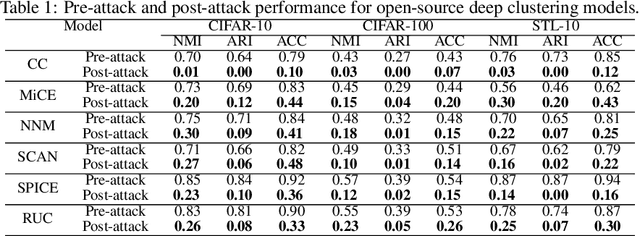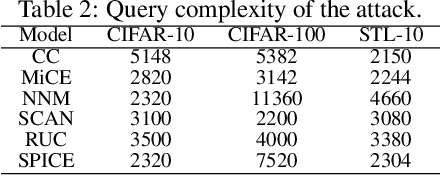Ashwin Sekhari
On the Robustness of Deep Clustering Models: Adversarial Attacks and Defenses
Oct 04, 2022



Abstract:Clustering models constitute a class of unsupervised machine learning methods which are used in a number of application pipelines, and play a vital role in modern data science. With recent advancements in deep learning -- deep clustering models have emerged as the current state-of-the-art over traditional clustering approaches, especially for high-dimensional image datasets. While traditional clustering approaches have been analyzed from a robustness perspective, no prior work has investigated adversarial attacks and robustness for deep clustering models in a principled manner. To bridge this gap, we propose a blackbox attack using Generative Adversarial Networks (GANs) where the adversary does not know which deep clustering model is being used, but can query it for outputs. We analyze our attack against multiple state-of-the-art deep clustering models and real-world datasets, and find that it is highly successful. We then employ some natural unsupervised defense approaches, but find that these are unable to mitigate our attack. Finally, we attack Face++, a production-level face clustering API service, and find that we can significantly reduce its performance as well. Through this work, we thus aim to motivate the need for truly robust deep clustering models.
 Add to Chrome
Add to Chrome Add to Firefox
Add to Firefox Add to Edge
Add to Edge